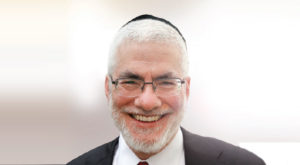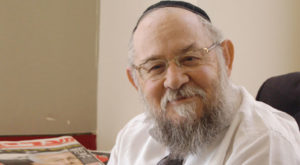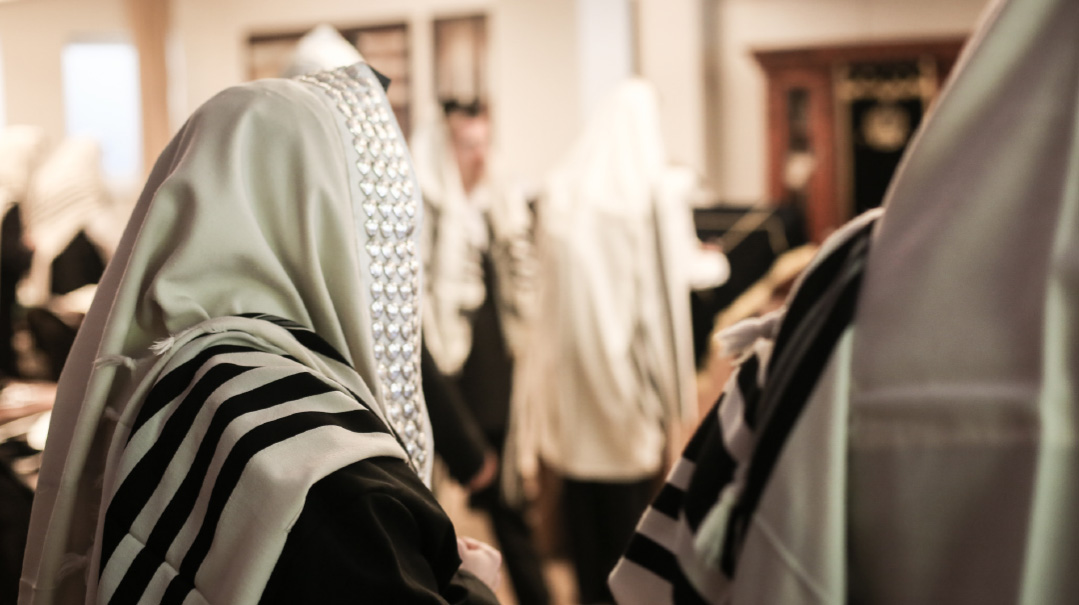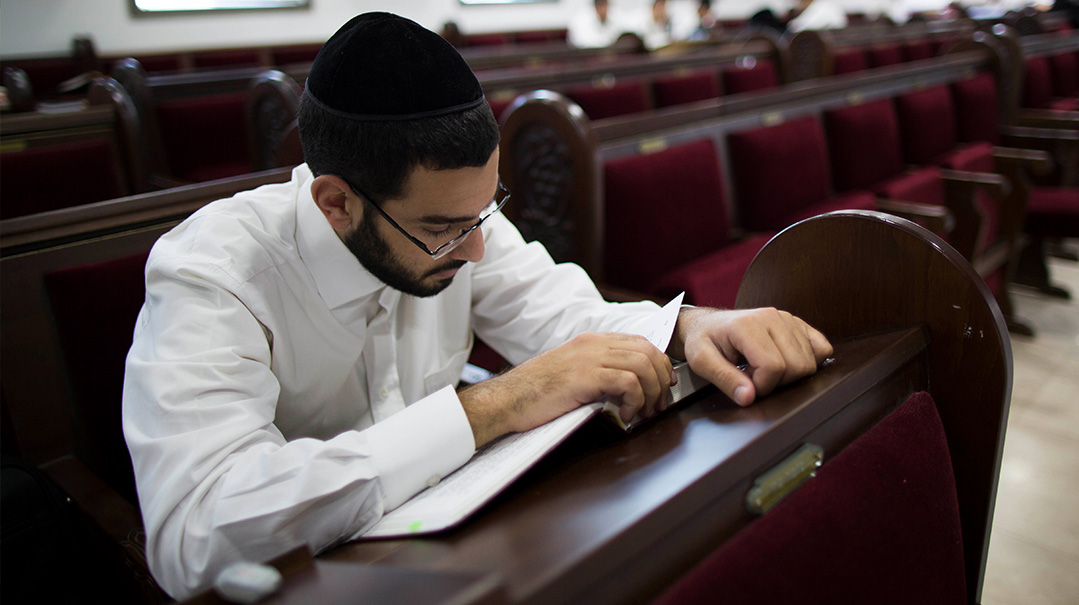2020 Vision

When the einei ha’eidah speak, let’s open our own eyes and follow their vision
It was 1982. I was a newcomer to Eretz Yisrael, having recently arrived in Bnei Brak to learn in the Ponevezh Yeshivah under the gadol hador, Rav Elazar Shach ztz”l. Life was a veritable Gan Eden — until war broke out with Lebanon. We would not even have been aware of the war, as life in yeshivah remained routine. Only the constant clatter of helicopters flying over Bnei Brak on their way to ferry injured soldiers to hospitals in Petach Tikvah and Tel Aviv, as well as emergency Tehillim when a new offensive was to be launched, served as reminders that we were indeed embroiled in a frightening engagement with our enemies.
And then came the awful news that Rav Shneur Kotler ztz”l was niftar. It was assumed a good percentage of the yeshivah would travel en masse to Yerushalayim, and those who normally took charge of such things made plans to order buses that would accommodate hundreds of talmidim. As per protocol, these well-meaning organizers approached Rav Shach, who was Rav Shneur’s cousin, as well as the foremost maspid at the levayah, to sign off on the mass exodus from yeshivah.
The response was a lesson I have carried with me for life. The Rosh Yeshivah declared that there would be no buses, and if anyone felt the need to attend, he should travel by taxi or sheirut. He explained that it was unthinkable that the soldiers who were putting their lives on the line for us, and would be present in the streets of Yerushalayim, should see hundreds of similarly aged boys gallivanting in the streets, as was bound to happen before and after the funeral. It would be such a lack of sensitivity and empathy to contribute to what would be perceived as a lack of nesius ol (shouldering their burden). There would be no masses. Individuals perhaps, but nothing more.
As I alighted from my taxi in Yerushalayim with my American peers, we all took notice of the heavy presence of soldiers, some even carrying their tefillin along with their rifles. Rav Shach was so right. His concern would have been the last thought on my mind. But the gadol hador saw much more than we did. It is not for naught that our leaders are called “einei ha’eidah,” the eyes of the nation. They see what the rest of us do not, and share that vision with those who look to them for direction.
It wasn’t until years later, when a selection of Rav Shach’s shmuessen and derashos were published in a small sefer entitled B’zos Ani Boteiach, that I realized how Rav Shach’s reaction was rooted in the Torah itself. When Hashem commanded Moshe Rabbeinu to lead Bnei Yisrael out of Mitzrayim, he refused, begging, “Shelach na b’yad tishlach.” Chazal explain that Moshe’s hesitation was due to his concern for Aharon’s kavod. It was unthinkable for him to slight his brother, a navi in his own right, by rising up to be the savior of the Jewish nation. This, despite the fact the Jews were mired in a miserable galus where babies were being used as bricks, adults were being tortured mercilessly, and life was absolutely unbearable.
After two centuries of torture, our people were finally being offered an open door to leave and eventually accept the Torah. Was that the time to be concerned with the remote possibility that Aharon would be slighted? And didn’t Aharon also want to leave Mitzrayim?
That is what we would think, said Rav Shach. But Moshe Rabbeinu, with his daas Torah, knew otherwise. Nothing, even the loftiest of goals, is worth pursuing at the expense of slighting another person. This was no mere theoretical concept for Rav Shach. Indeed, the Torah of gedolei Yisrael serves as a window into what makes them gedolim in the first place.
Twelve years later, on Purim 1994, a massacre took place at Mearas Hamachpeilah, when a Jewish gunman killed 29 Muslims and injured over 100 more before being beaten to death. The incident was the subject of much conversation. What was the proper hashkafah vis-a-vis this incident? Well-meaning individuals wanted to publicize the view of a number of talmidei chachamim that this was not an act to be admired, and, as is the style in Eretz Yisrael, to hang street placards to that effect. Rav Shach, the story goes, was consulted on the matter. His response was that while that is indeed the correct hashkafah, hanging posters was not the proper way to convey the message to the masses. The man’s widow and children did not need to suffer by seeing the public defamation of their husband and father, and any noble intent did not justify shaming innocent family members. It was Rav Shach l’shitaso. No matter how virtuous the deed, it isn’t worthwhile if it negatively impacts others. Obviously, there are nuances and factors to consider in every situation and daas Torah needs to be consulted anew each time. But the baseline requirement of considering the impact on others has been set.
As a less dramatic but practical application of this principle, I have proudly observed many instances where there is a conflict between two chiyuvim to lead davening, due to aveilus or observance of a yahrtzeit, and one is happy to give up his turn to keep peace in the shul, saying his parent would have never wanted him to grab the amud at the expense of another’s feelings. (There are halachos governing these conflicts as well, but when one acts with consideration for the other party, only good things result.)
Another practical application relates to our conduct in galus vis-a-vis our hosts. We are well aware of Chazal’s message that Klal Yisrael merited geulah from Mitzrayim because we retained our identity by not changing our names, language, and dress. Certainly, throughout our long galus, Klal Yisrael proudly held on to our identities, even in the face of persecution. There is no doubt we should continue to do so. Nevertheless, there is a distinction between proudly retaining our identity and unnecessarily flaunting ourselves in front of our hosts. As the winds of galus blow in an uncomfortable direction of late, we need to be true to Chazal’s dictums of how to conduct ourselves in the current reality.
The Gemara relates that once, when Rabban Gamliel was traveling on a ship, he witnessed another ship, which was carrying none other than Rabi Akiva, break apart. Eventually the two met up on dry land, and Rabban Gamliel asked Rabi Akiva in amazement how he had survived the shipwreck. Rabi Akiva responded, “I chanced upon a board from the ship, and every time a wave approached, I lowered my head.” The Gemara concludes, “Based on this, the Chachamim said, if reshaim are approaching, lower your head.” Rashi explains, “Let the moment pass and do not provoke them.” This Gemara is our mandate on how to conduct ourselves in the non-Jewish world we live in. We do not provoke; we bow our heads and move on.
Rav Shach invoked this Gemara when expressing his disappointment in the Israeli government during the early ’80s, when a tug-of-war broke out over the proposition of returning the Golan Heights to Syria. The well-publicized statement from the prime minister was, “We have lived 2,000 years without the United States, we will live another 2,000 years!” This, said the Rosh Yeshivah, directly contradicted the timeless advice of our sages. My rebbi, Rav Elya Svei ztz”l, added that statements such as that were actually endangering Yidden in America as well. We must think before we speak or act.
We, too, need to scrutinize our own actions and words, so as not to unnecessarily attract negative attention. Much has been said and written about public displays of excess, which need not be rehashed. Personally, I am uncomfortable with use of public property, such as billboards, to advertise Jewish events or even mitzvah campaigns. We receive enough attention without it, and can (and do) get the message out via internal means such as signs inside our institutions and places of business, ads in our print media, and (our favorite) robocalls. Lest you think our neighbors don’t notice, they do, and unfortunately too many of them consider these public displays to be offensive. We need to think about the ramifications of how others could chalilah be affected as we unnecessarily bring what could remain concealed into the public view.
We have to see beyond what is right before our eyes. Moshe Rabbeinu had geulah in his grasp, yet he saw the possibility of Aharon’s dignity being diminished and decided it wasn’t worth it. When kavod for one of the greatest marbitzei Torah in the world was at stake, Rav Shach considered the feelings of the soldiers in Yerushalayim. Well-meaning kana’im saw an opportunity to disseminate daas Torah regarding a difficult and confusing incident, but our leaders saw an embarrassed widow and orphans navigating a new world without a husband and father.
We need to apply these lessons to the way we live, and rethink everything we do with the same perspective, seeing beyond what stands in front of our eyes at the moment. Does our attempt for kibbud av result in hurt feelings? Does our attempt to do praiseworthy actions attract unnecessary, and potentially malevolent, attention? Do we consider unintended consequences of our actions?
And when the einei ha’eidah speak, let’s open our own eyes and follow their vision.
Rabbi Plotnik,a talmid of the yeshivos of Philadelphia and Ponovezh, has been active in rabbanus and chinuch for 25 years and currently serves as ram in Yeshivas Me’or HaTorah in Chicago.
(Originally featured in Mishpacha, Issue 794)
Oops! We could not locate your form.












